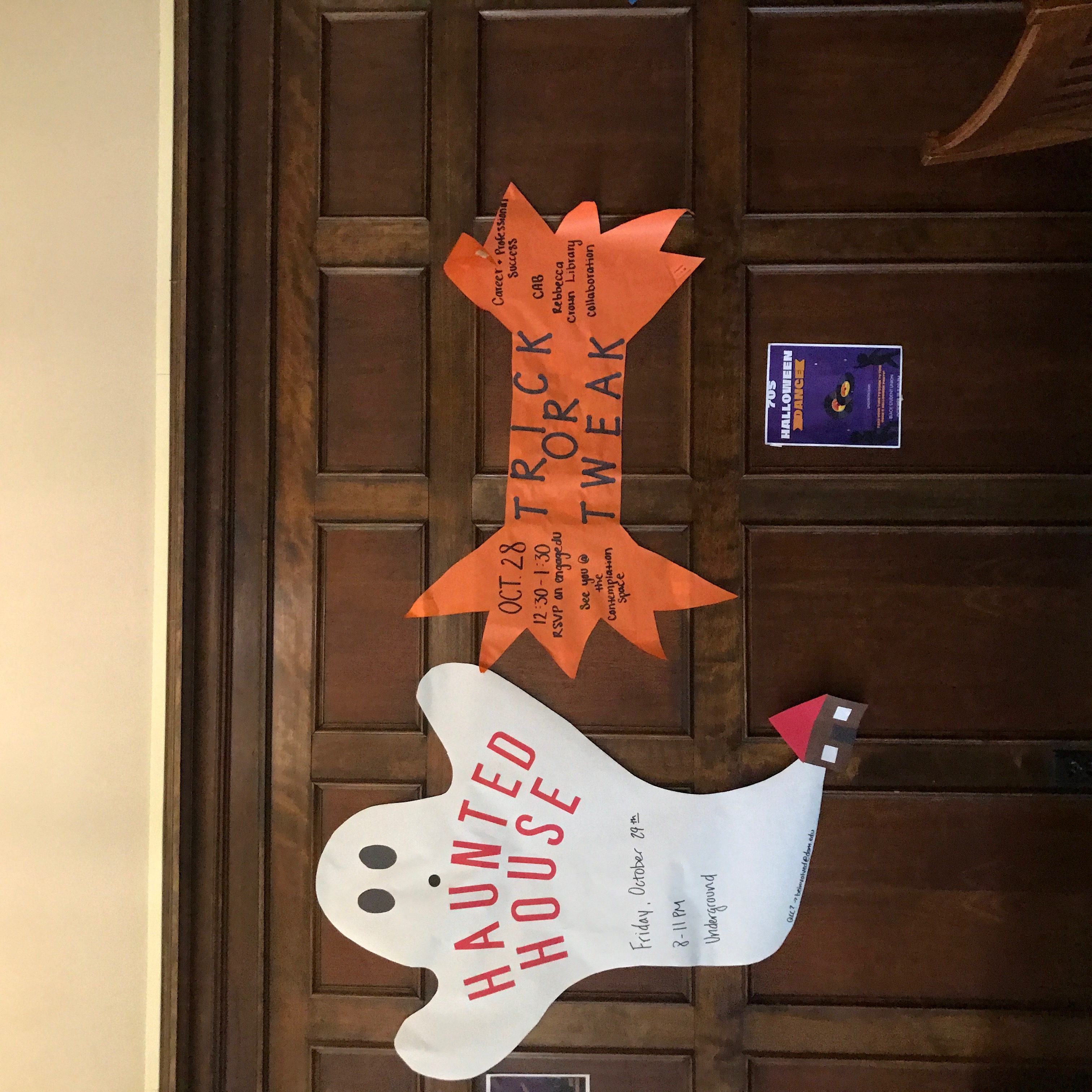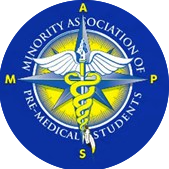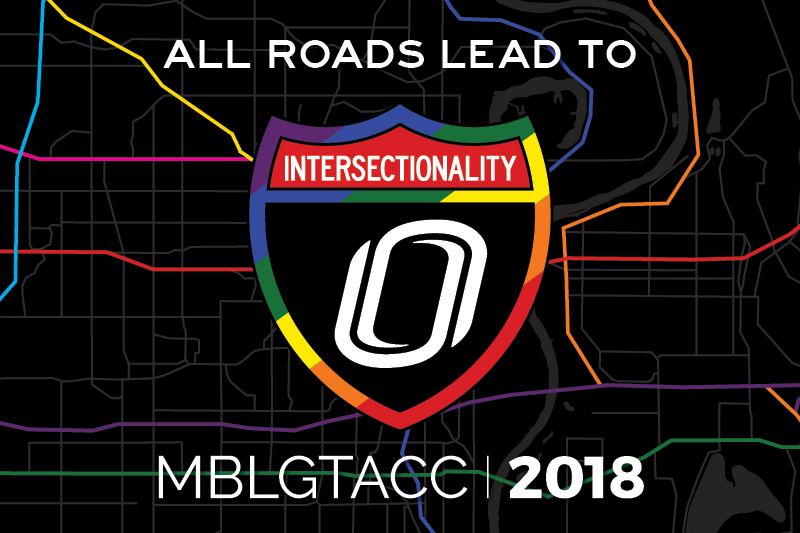
By: Caitlin Moran
March 1, 2018
On the morning of Feb. 16, a group of Dominican students and one staff member set out for the seven hour drive to Omaha, Nebraska for The Midwest Bisexual Lesbian Gay Transgender Ally College Conference (MBLGTACC). The upcoming weekend promised serious dialogue on social justice alongside empowerment and celebration of identity.
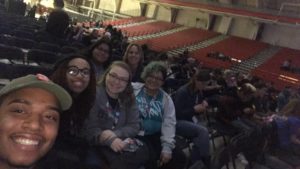
The conference featured three keynote speakers, including queer Muslim activist Blair Imani, transgender activist CeCe McDonald, and YouTube personality Dylan Marron.
“Dylan Marron has an audience, has a platform, but he’s able to self-reflect. He talked about videos he wished he hadn’t made because they didn’t promote dialogue,” said Common Ground Staff Advisor, Sara Furlette-Koski.
Marron creates content that highlights social justice issues on his YouTube channel and his podcast, Conversations With People Who Hate Me. Through both mediums, Marron engages with his audience, often initiating conversation with others who vehemently oppose his ideas. Clips of his content were played for the crowds during his speech at MBLGTACC.
“He was very informative, and it was amazing how at the end of the conversation how open they became to him. I found it great how people’s minds just completely flipped when he was done talking to them,” sophomore Andre Easton said.
Aside from the three keynote speakers, the conference also hosted other smaller sessions and workshops. These sessions focused on specific corners of the queer community, often intersecting sexuality, race, and the arts in a single presentation.
“One of the sessions that I went to was called Black Gay Slay. It was about intersecting the black community and the queer community. They talked about a lot of problems that black queer people face when coming out and being open within the community. Being a minority and being queer is like having two things against you in society, so it was a lot about what you can do in certain situations,” Easton said.
Several Dominican students also attended an improv session covering queer presence in the comedic community, which mixed conversations on the arts and the difficulty of expressing sexuality in spaces of performance.
“The session was called Laughing Out Loud. It was talking about comedians within the queer community and one young lady was Hayden Crystal. She identified as bisexual, and she and the other lady were talking about how being queer in the comedic community has afforded them a lot of opportunities as well as taken some away from them,” Easton said.
Furlette-Koski also added that the women spoke on “The erasure of bisexuality and how to find inclusive spaces.” This struggle to find accepting, welcoming spaces is a prevalent issue in the queer community, an issue that Common Ground Officer Alecx Hernandez connected with.
“I enjoyed people finding comfort spaces in comedy. You’re putting yourself in a very vulnerable position that helped you become comfortable and cool with who you are,” said Hernandez as they recalled the experience of one of the comedians, who was deaf. “She kept creating material and now she does what she loves.”
Hernandez also sat in on a session that focused on queer choirs. As someone interested in Voice Performance, this particular topic that merged identity and art attracted their attention.
“It was interesting because one of the speakers was part of a choir that speaks out against conversion therapy. It was a different side of getting to know a person.”
However, despite the surface inclusiveness of the overall conference, a handful of frustrations arose over the course of the weekend.
In regards to promised intersectionality, Hernandez felt as though the conference organizers could have extended more of an effort, saying that “They tried to focus on black people, and they had a Muslim presenter. I was looking for Hispanic representation, and I didn’t see that. That was something I wished to see more of. But they did try to create a more diverse group. You could tell they tried, but a little more would’ve been appreciated.”
MBLGTACC does provide a space for discussion on topics that stress and strain the queer community, but it also allows young adults a space to celebrate their identity, which is a scarce privilege for many young queer people in America. Near the end of the conference, several drag queens performed and entertained the crowds for a night. RuPaul’s Drag Race alum Jujubee accompanied other local queens for a show full of stunts and glitter. Dominican even ended up sharing the spotlight, with Easton joining the queens for a moment, recalling that “As we were entering the drag show, the queens who were doing the show called me out to dance with her.”
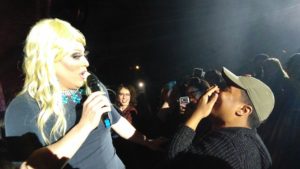
“The drag show was hilarious because of the interactions they had with Andre. We’re little nobodies not even from Chicago, and to have them call us out–we just made a presence,” Hernandez said.
And this presence is the underlying necessity of events such as MBLGTACC. Too often, queer people are not allowed presence or self-expression in spaces they once called home, and MBLGTACC encourages individuals to occupy the spaces they deserve with open minds and loving hearts.
Furlette-Koski commented on the variety of self-expression displayed at MBLGTACC, saying that “What I love is that people can express themselves fully. Some people would wear fancy dresses and shoes, and some people were in sweats. It was every combination of every sort. They see everyone else expressing themselves freely. It helps me have faith in the next generation.”
The next generation is ready to embrace an accepting future. Dominican students are evidence of this truth. The students who attended MBLGTACC represent just a percentage of those willing to expand their perspective and learn lessons of acceptance similar to Easton’s, who decided that the main takeaway from the weekend was the importance of a learning experience.
“I think you gain a lot of knowledge. I learned about a lot of stuff that I had no idea about. How there are other people like me.”

